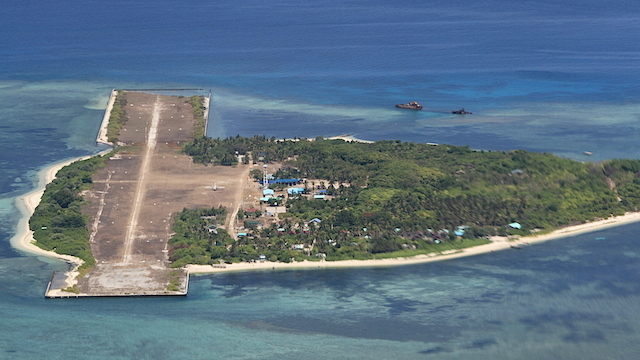From the Philippine News Agency (Oct 17):
Western, Asian, African envoys support Bangsamoro peace process
The Government of the Philippines Negotiating Panel for
talks with the Moro Islamic Liberation Front (MILF) acknowledged the renewed
support of the international community for the Bangsamoro peace process and its
members’ call to pass a meaningful Bangsamoro Basic Law (BBL) without delay.
“Domestic support is vital in sustaining the Bangsamoro
peace process. International support for the passage of the basic law is also
valuable because they provide a global perspective that broadens our parochial
and partisan appreciation of our quest," said government chief peace
negotiator Professor Miriam Coronel-Ferrer.
“As outsiders looking in, the international community can
offer a more objective point of view. We are heartened that they continue to
see that we are fighting the good fight and thank them for the trust and
goodwill they have shown from the beginning,” she added.
Western and Asian nations supporting the Bangsamoro peace
process have issued yesterday a new call for the continuation of the Bangsamoro
peace process and the establishment of safeguards to prevent a resumption of
armed conflict in Mindanao.
Signed statement of support
Diplomats representing the Western and Asian nations
stressed the need to ensure that the Comprehensive Agreement on the Bangsamoro
(CAB) signed by the Philippine government and the MILF in March 27, 2014 would
be implemented to sustain the peace and stability in the Philippines’ main southern island of Mindanao.
“We, the undersigned, share a common aim with the people of
the Philippines to work
towards a just and lasting peace in Mindanao that brings prosperity, security,
and social benefits to all Filipinos and maintains the unity of the Republic of
the Philippines,”
the ambassadors stated. “We express our solid support and commitment to the
continuity of the peace process…”
Among the signatories are Ambassador Bill Tweddell of
Australia; H.E. Marion Derckx of the Netherlands; Ambassador Philip Goldberg of
the United States of America; Ambassador Erik Forner of Norway; Ambassador Luis
Calvo of Spain; Charge d’ Affaires a.i. Raoul Imbach of Switzerland; Ambassador
Asif Ahmad of the British Embassy; Ambassador Kazuhide Ishikawa of Japan;
Ambassador Rolando A. Guevara Alvarado of Panama; Ambassador Jon Top
Christensen of Denmark; Ambassador Jaroslav Olsa, Jr. of the Czech Republic;
Ambassador Massimo Roscigno of Italy; Charge d’ Affaires a.i. Ngerikl Baules of
Palau; Charges d’ Affaires a.i. Stella De Araneta of Colombia;
Ambassador-Designate Franz Jessen of the European Union; Ambassador Thomas
Ossowski of Germany; Charge d’ Affaires Mihai Sion of Romania; Ambassador
Marthinus Slabber of South Africa; Ambassador Jae-Shin Kim of Korea; Ambassador
Neil Reeder of Canada; and Deputy Head of Mission Laurent Legodec of France.
Ambassador Johny Lumintang of Indonesia,
Ambasaador David Strachan of New Zeland, and DHM Charlotta Schlyter of Sweden also
expressed their intention to sign the statement.
The group explained that there was a pressing need to give
life to the 2014 negotiated peace accord between the government and the MILF
that served as basis for the drafting of a Bangsamoro Basic Law now pending in
the Senate and the House of Representatives, and “to the long term political,
economic, and social pillars that will bring the peace dividend to the country
as a whole”.
“We ask for continued commitment from all stakeholders to
seize this opportunity to enable the Bangsamoro people to form an effective and
inclusive, devolved administration as called for in the [2014 CAB]. To do this
will require flexibility on all sides to work within current Constitution of
the Republic and recognition of the aspirations of the people of the
Bangsamoro,” the ambassadors continued.
When passed, the BBL will abolish the current Autonomous
Region in Muslim Mindanao (ARMM) and set up a parliamentary regional government
that will provide the Bangsamoro with more fiscal and political autonomy.
Continuity and common interest
According to the diplomats, their stake in achieving peace
and development in the Philippines
is “not just as committed friends and development partners” but “as investors
and members of the community through our citizens.”
“The long and difficult history of this troubled region can
and should move to a more positive future agenda. Much work has been done to
bring the parties, activists, politicians, business, and civil society to the
brink of a settlement. For the country as a whole, it is essential that setbacks
are overcome and people of vision and faith come together to ensure that the
momentum for peace continues.”
The CAB is a product of almost 18 years of negotiations. It
builds on the gains of the government’s 1996 Final Peace Agreement and the 1976
Tripoli Agreement with the Moro National Liberation Front (MNLF). The
contemporary Moro uprising crystallized due to the atrocities committed by the
late dictator Ferdinand Marcos to the Moro people.
“In sustaining the peace effort, it is vital that there is
no return to violence and that long-established institutional safeguard
measures remain in place to monitor and resolve disputes.”
“In a world of conflict and instability which has marred the
lives of so many, we want to support the Philippines to emerge as a nation
that is at peace within itself,” the statement concluded.
http://www.pna.gov.ph/index.php?idn=1&sid=&nid=1&rid=816302


